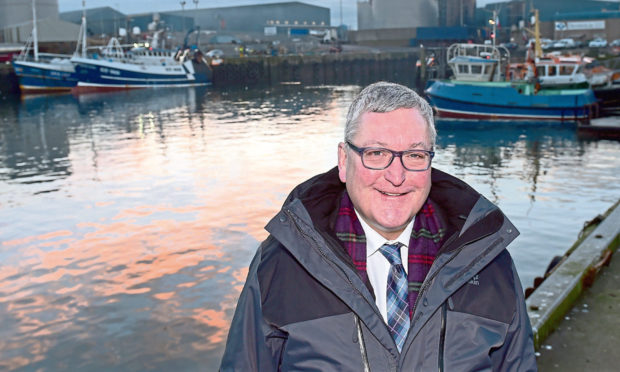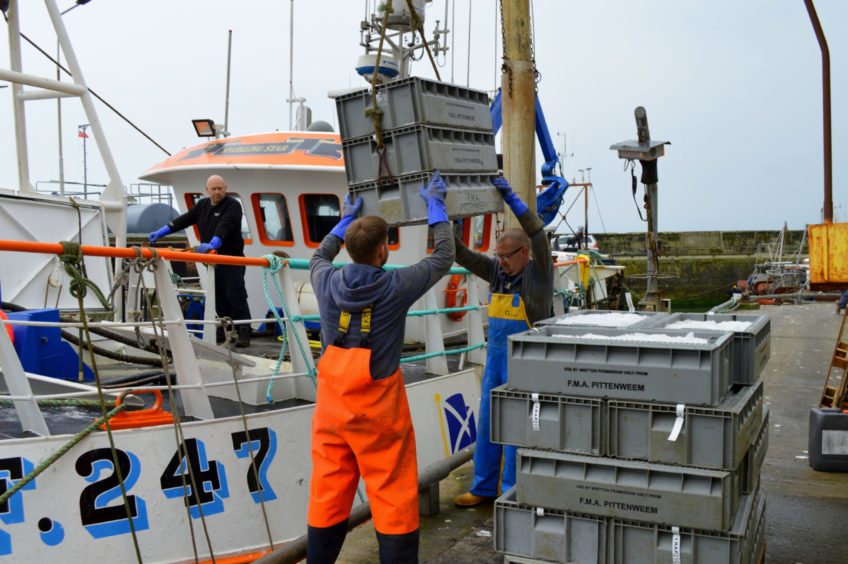Fisheries Secretary Fergus Ewing and Scottish Government officials will take part in the first meeting today of a seafood task force set up by the UK Government.
The recently launched Scottish Seafood Exports Task Force is “hosted” by the office of the secretary of state for Scotland and chaired by Scotland Office Minister David Duguid.
It was created in response to severe delays affecting seafood exports in January and ongoing challenges surrounding new red tape post-Brexit.
Incompatibility between different computer systems has also been a major source of frustration and hold-ups.
The seafood sector has faced six weeks of relentless bureaucracy and barriers to trading with the EU.”
Fergus Ewing, Fisheries Secretary
Mr Ewing said streamlining export processes, fixing IT systems and resolving trade issues with the EU must be urgent priorities for the new task force.
Speaking ahead of its first meeting, he highlighted areas where the industry has faced challenges since the end of the Brexit transition period.
He said the task force’s focus must be on:
- Ensuring a more consistent approach and understanding of customs arrangements, including providing clarity to EU vessels landing in the UK.
- Simplifying the system used for export health certificates to make it easier for businesses and certifiers to make changes to their paperwork.
- Aligning HM Revenue and Customs and other UK Government systems to cut down on errors and make them more user friendly.
Mr Ewing said: “The seafood sector has faced six weeks of relentless bureaucracy and barriers to trading with the EU which have been imposed by a damaging and last-minute Brexit deal.
“While I’m pleased the UK Government has listened to our calls for a task force to look at the challenges, I am disappointed that several leading people who are directly involved in the sector and have first-hand experience of handling and dealing with the problems have not been included.
“The task force must not be a talking shop – it needs to provide urgent solutions and I will continue to fight to make things better for our fishermen and wider seafood sector.”
He added: “These are not just ‘teething problems’ – this is an entirely new way of working that is a direct consequence of the way the UK Government handled Brexit, and we must look at ways to minimise these impacts.
Barriers to trade
“This is time-critical and the task force must look at how we can remove barriers to trade, resolve some of the export issues businesses have faced with scallops, cockles, mussels and oysters, and streamline processes.
“If it is to be effective, it will need the full engagement of UK departments whose systems and processes are the source of much of the frustration encountered by fishermen and processors in all parts of the UK.
“We must do what we can to save the jobs, livelihoods and communities that our valuable seafood sector supports, which is why the Scottish Government has stepped in and set up a new £6.45 million scheme for shellfish catchers and producers and trout farmers.
“This support for businesses who have been hit hardest by EU exit and the continuing impacts of Covid-19 will help with the immediate challenges, while giving businesses the space to understand the changes they need to make to adapt to these new tougher, trading realities.”

